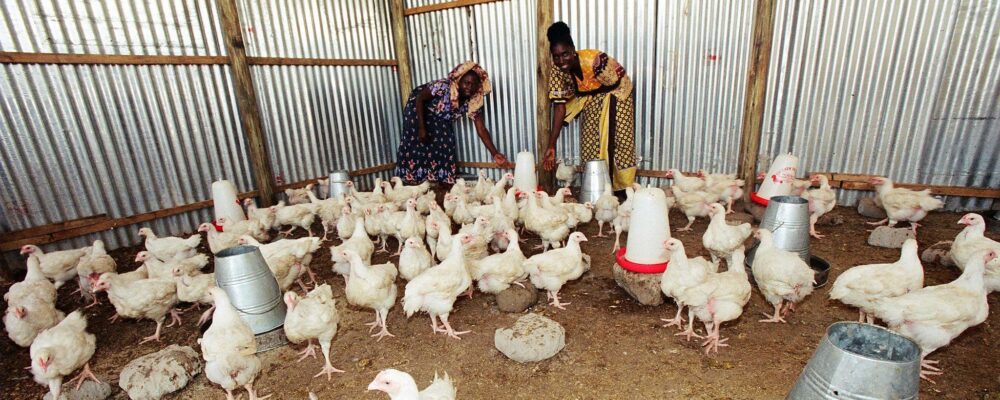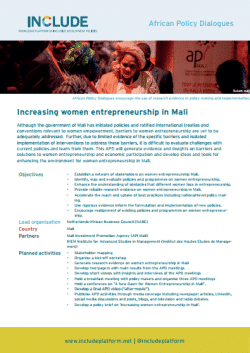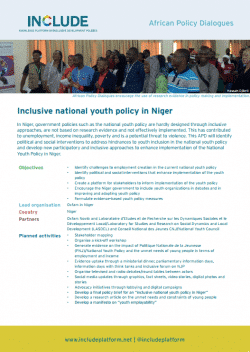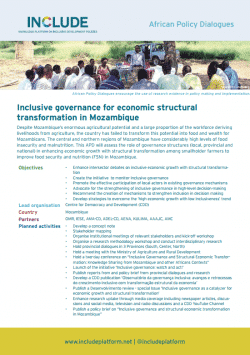
To entrench policy dialogues and strengthen research uptake in Africa, this month, INCLUDE has established three new African Policy Dialogues (APDs) in Niger, Mali, and Mozambique. The APDs are part of INCLUDE’s innovative demand-based approach to evidence use in the formulation and implementation of policies and programmes in Africa. APDs identify priority national policy issues, are driven by actors and incorporate diverse policy actors, synthesise rigorous research evidence and utilise diverse research uptake strategies including tapping into ongoing national policy discussions.
These are the 2020-2021 African Policy Dialogues:
Increasing women entrepreneurship in Mali
In Mali, the dialogues will generate evidence on barriers and solutions to women entrepreneurship and develop ideas and tools for enhancing the environment for women entrepreneurship. Visit page.
Inclusive national youth policy in Niger
In Niger, the dialogues will evaluate political and social hindrances to youth inclusion in the national youth policy and develop inclusive approaches to enhance implementation of the National Youth Policy. Visit page.
Inclusive governance for economic structural transformation in Mozambique
In Mozambique, the dialogues will assess how governance structures enhance economic growth with structural transformation among smallholder farmers to improve food security and nutrition. Visit page.
The new APDs are expected to contribute to evidence based formulation and implementation of policies and programmes and lead to inclusive development among the youth, women and smallholder farmers.
Sharing insights from preceding African Policy Dialogues
- In Uganda, the dialogues contributed generated social protection issues content for the National Development Plan and debates on informality of women entrepreneurs and their to access formal social protection across several platforms became widespread.
- In Kenya, the dialogues contributed to the content of the Kenya National Social Protection Bill 2015 on coordination of social protection, comprehensive definition of social protection and clarified the linkages between social protection actors.
- In Mozambique, debates on youth employment creation in the extractive sector became decentralised to the provinces and districts and the National Institute of Statistics incorporated a tool to measure how inclusive the extractive firms are.
- In Ghana, employment creation became a key agenda in the campaigns for the 2016 local and national elections and the opposition party’s manifesto was even titled ‘Change: An agenda for jobs’.
- Finally, in Nigeria, the federal government agreed to set aside a budget for the revival of the rice and cotton value chains in order to prioritize agriculture and agro-processing for employment creation.
Find all of the former and current dialogues on the African Policy Dialogue page.


